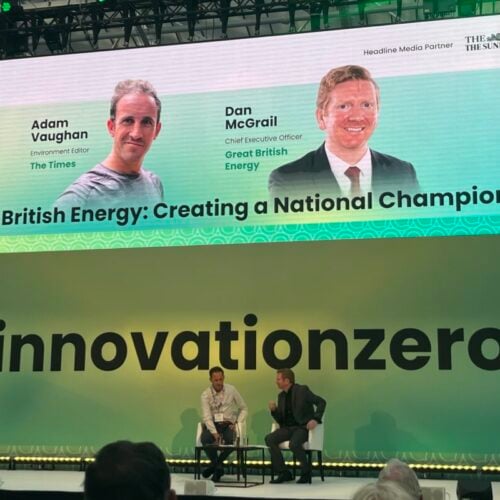In light of the Intergovernmental Panel on Climate Change’s (IPCC) latest report, which highlighted the rapidly closing window of opportunity to reverse climate change, chief executive of Scottish Renewables, Claire Mack, identified that the future of renewables in the UK is at a crucial tipping point.
Opening Scottish Renewables’ Net-Zero Energy Conference 2023, Mack said: “My feeling is that we are in that money where your mouth is time and place, we need to be the solution-isers and address barriers head on to achieve the accelerated pace required not just for us as an industry to prove that we are the right answer, but also the neatest-term answer for planet Earth and her people.”
The opening panel discussed what the UK required to build a resilient energy system and a number of key themes were addressed.
Ensuring a Just Transition
One of the opening panellists was minister for just transition, employment and fair work, Richard Lochhead MSP. Lochhead named the 2020s the ‘green industrial revolution’ a period he deemed as important as the industrial revolution of the 1780s.
When working towards a future energised by renewable energy however, Lochhead emphasised the importance of ensuring a just transition.
“Our carbon emissions are down by 51% since the 1980 baseline, over halfway to net zero. Recent climate change committed basis you’ve seen just this week underlines the significant scale of the change needed to achieve further targets,” said Lochhead.
“As a country, we all work together to achieve that. And in doing so, it’s critical that we don’t leave anyone behind as we go through that economic transformation, hence, maybe the first ever Minister, the Scottish Government for just transition. Because here in Scotland we’ve seen the change caused by rapid structural change in the past. So we need to make it a priority to ensure that the changes to our society and our economy today are done in a way that’s equitable and fair.”
Is public interest in renewables slipping away?
Another theme discussed by the panel was introduced by Ross Laird, head of Scotland for the PR company, Grayling, who identified a shift in public attitudes towards renewable energy.
“If you look at recent polling, what we’re seeing is that, whereas before [the energy crisis] climate changes was in the top five key concerns, we’re actually seeing it starting to slip,” said Laird.
“Now the economy, cost of living are people’s priorities, followed by health, education, immigration, housing, these issues are also coming to the fore. And there’s a danger that perhaps the public attitudes around net zero, and investment in renewables is perhaps starting to slip away.”
To address this, Laird said the sector must begin to look at ways to re-engage the public in the conversation around renewables within the next year. This would be most effective if economic benefits from renewables were granted to the public.
One organisation that is already enabling consumers to enjoy the cost reductions granted by renewable energy is Ripple Energy.
Ripple Energy allows consumers to co-own renewable generation sights (such as wind and most recently solar) and receive money off their energy bills based on the amount of energy produced by their share.
The company’s CEO and founder, Sarah Merrick, was also one of the panellist opening today’s event (22 March).
Describing the cost benefits experienced by Ripple Energy’s co-ownership projects Merrick said: “It’s a way of showing people that there’s this amazing future out there that is powered by wind and solar, and it’s really cheap, and that they can be a genuine part of it – it’s not smoke and mirrors.
“I think people haven’t been on board and haven’t really been as front and centre of the transition to net zero as they perhaps should have been and we just want to allow them to have that position right at the heart of it so that they can benefit directly themselves.”
UK Government’s nuclear focus leaving ‘missed opportunities’
In this year’s Spring Budget, Chancellor Jeremy Hunt announced strong support for the British nuclear industry by launching the Great British Nuclear to address market constraints.
Although some members of the panel felt there was little threat of an ‘inter-technology battle’ Lochhead said the sheer amount of time and resources required to maintain nuclear generators makes the decision “unbelievably frustrating” and could slow down the uptake of other cheaper renewable sources.
“Whether it’s carbon capture, or whether it’s the hydroelectricity marketing mechanism [that nuclear overshadows], it’s very frustrating. You don’t want a missed opportunity, you don’t want to make that mistake,” concluded Lochhead.






